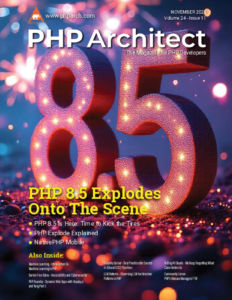Posts marked with “aws”
The Workshop: Refactoring to an Object Store
Welcome to the third installment of our containerization journey. Last month we covered running our application locally in Docker containers replacing our pre-existing development virtual machine. We used Laravel Sail to scaffold our development environment with Docker Compose. This month we’re going to look at a real-world application running on a traditional Linux Virtual Private […]
The Workshop: S3 Storage with MinIO
This month, we’re diving into running our own S3 compatible open-source server via the open-source project MinIO. We’ll configure MinIO alongside our local development environment to quickly replicate our application’s integration with S3 object storage without operating on “production” storage buckets or having to set up “dev” buckets.
The Workshop: Run Amazon Linux Locally
This month we focus on running Amazon Linux on your local development machine via Vagrant. While you could spin up resources in EC2 and go to town, maybe you’re not quite ready to jump into the deep end. Perhaps you want to test your application in a controlled environment to see how it performs on […]
Serverless PHP With Bref, Part Two
In part one of this series, I introduced serverless applications and looked at how Bref makes it easy to develop and deploy serverless PHP functions to AWS Lambda with a simple hello world function. Serverless functions don’t live in a vacuum and tend to integrate with other services, let’s turn our attention to what a […]
Serverless PHP With Bref, Part One
In recent years, a different way to build applications has arisen called serverless computing. This term is not a good name; I’m reminded of the adage that there are two hard problems in programming: naming things, cache invalidation, and off-by-one errors. Serverless computing as a name implies no servers, but there are servers—you don’t think about them though. A better way to think about it is that the servers and the management of them are abstracted away and the provider manages the allocation of resources, not the application architect.
Serverless PHP With Bref, Part One
In recent years, a different way to build applications has arisen called serverless computing. This term is not a good name; I’m reminded of the adage that there are two hard problems in programming: naming things, cache invalidation, and off-by-one errors. Serverless computing as a name implies no servers, but there are servers—you don’t think about them though. A better way to think about it is that the servers and the management of them are abstracted away and the provider manages the allocation of resources, not the application architect. In this article, I’m going to walk through how to use Lambda with PHP to execute a function.
Moving a Monolith to AWS
Cloud technology can give applications greater flexibility, but it can be more complicated to maintain, especially for a monolithic legacy application. However, with a few tweaks, even older codebases can run in the cloud. Let’s take a look at how an older application which needs to scale can benefit from running in the cloud.











